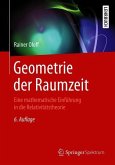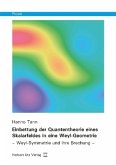In the last decade mathematical crystallography has found increasing interest. Siginificant results have been obtained by algebraic, geometric, and group theoretic methods. Also classical crystallography in three-dimen sional Euclidean space has been extended to higher dimen sions in order to understand better the dimension independent crystallographic properties. The aim of this note is to introduce the reader to the fascinating and rich world of geometric crystallography. The prerequisites for reading it are elementary geometry and topological notations, and basic knowledge of group theory and linear algebra. Crystallography is geometric by its nature. In many cases, geometric arguments are the most appropriate and can thus best be understood. Thus the geometric point of view is emphasized here. The approach is axiomatic start ing from discrete point sets in Euclidean space. Symmetry comes in very soon and plays a central role. Each chapter starts with the necessary definitionsand then the subject is treated in two- and three-dimensional space. Subsequent sections give an extension to higher dimensions. Short historical remarks added at the end of the chapters will show the development of the theory. The chapters are main ly self-contained. Frequent cross references, as well as an extended subject index, will help the reader who is only interested in a particular subject.
Hinweis: Dieser Artikel kann nur an eine deutsche Lieferadresse ausgeliefert werden.
Hinweis: Dieser Artikel kann nur an eine deutsche Lieferadresse ausgeliefert werden.
`The book will be welcomed by crystallographers who want to improve their knowledge of theoretical and mathematical crystallography.' Acta Crystallographica, 1987
`The book will be welcomed by crystallographers who want to improve their knowledge of theoretical and mathematical crystallography.' -- Acta Crystallographica, 1987








